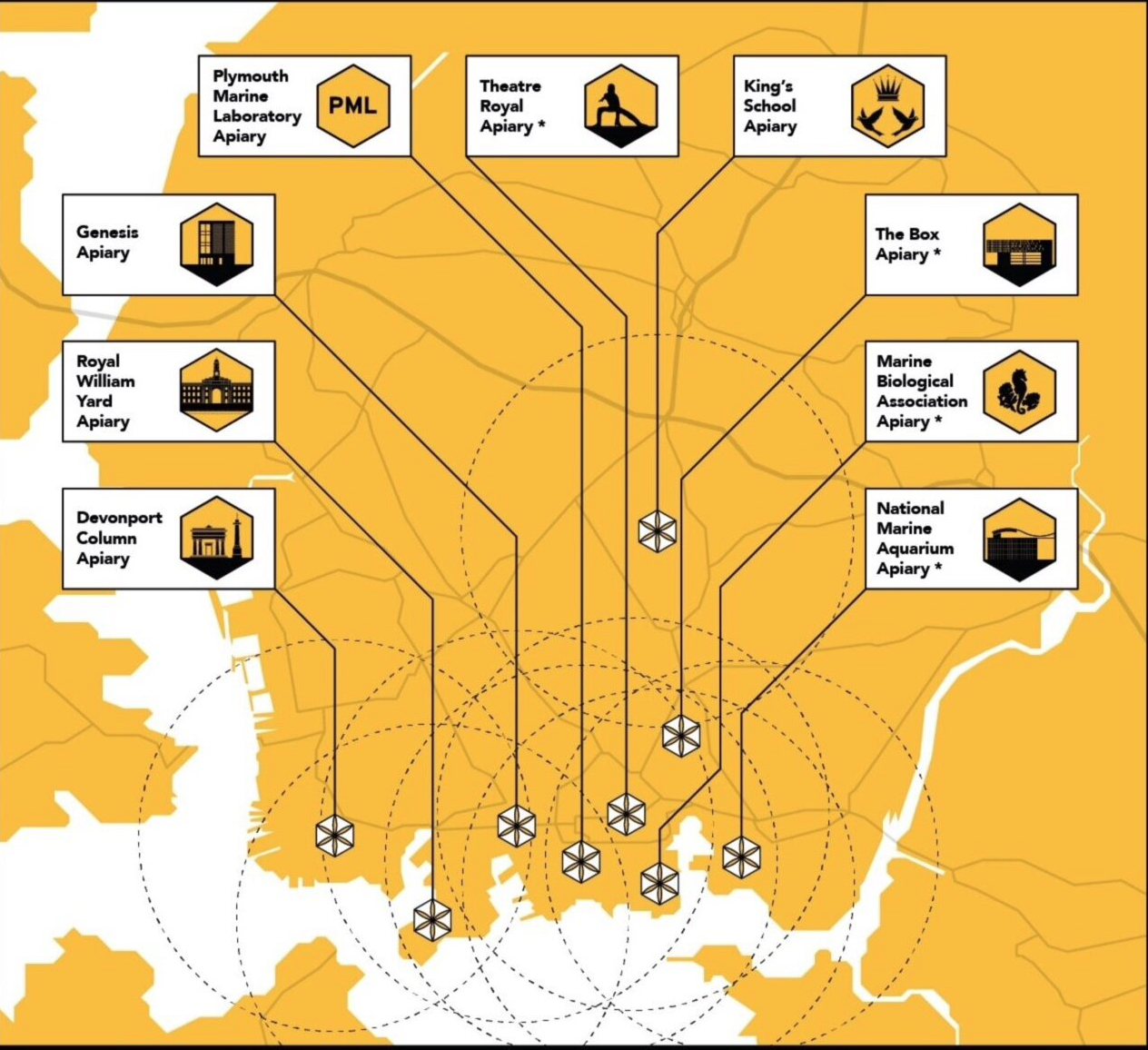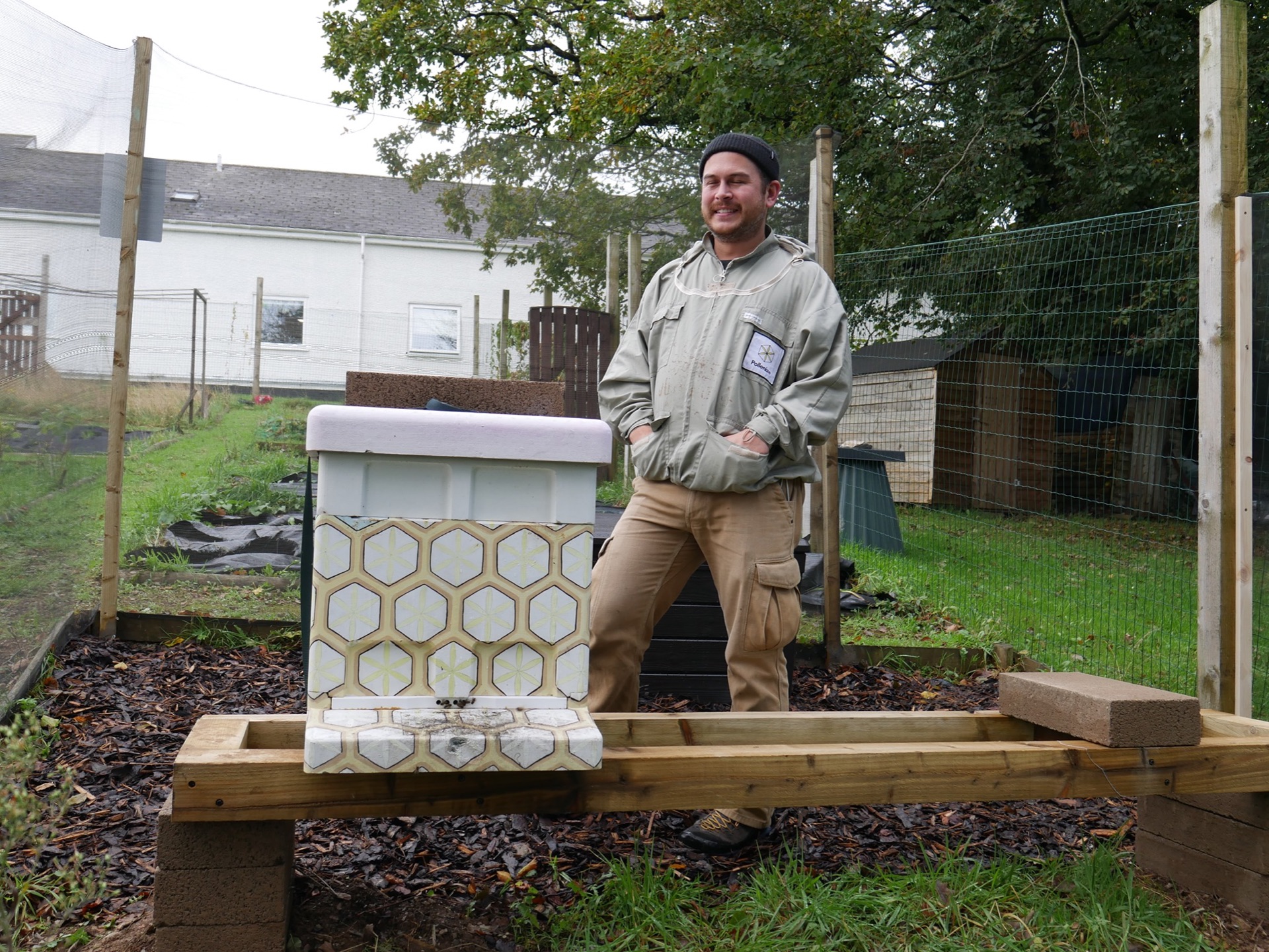According to Nature Communications, ‘A scientific review of insect numbers around the world suggested that 40% of species were undergoing “dramatic rates of decline” with bees, ants, and beetles disappearing 8 times faster than mammals, birds or reptiles.’
Adapted to pollinate, bees play an incredibly important role in biodiversity and are vital to the maintenance of healthy food supplies. They help plants to grow, breed and produce food by transferring pollen between flowering plants. Many of the plants that we need for food, such as almonds, vanilla and apples rely on pollination, with Friends of the Earth stating that without bees it would cost UK farming £1.8 Billion to pollinate their crops and that 97% of flower rich meadows, which support bio-diversity, have been lost since the 1930’s.
‘Loss of pollinators could lead to lower availability of crops and wild plants that provide essential micro-nutrients for human diets, impacting health and nutritional security and risking increased numbers of people suffering from vitamin a, iron and folate deficiency’

SJ Richards, CC BY-SA 4.0 <https://creativecommons.org/licenses/by-sa/4.0>, via Wikimedia Commons
Pollenize, a Plymouth based social enterprise run by Matthew Elmes and Owen Finnie, is working to conserve and extend the local population of the threatened dark honeybee, with their stock coming from Mount Edgcumbe Cornish Bee Group, the UK’s first Black Bee Reserve. They have seen the key drivers of decline in bee numbers are land-use intensification, the use of chemicals on crops and urbanisation.
70% of the UK’s land is agricultural, decreasing biodiversity by replacing wild species with crops. Additionally, the pesticides and fertilisers used on crops spoil the soil, ensuring that any pollinators are poisoned by these areas. Since founding the company in 2018, Elmes and Finnie have been producing and distributing packets of wildflower seeds, perfect for pollinators. The seed packets have been put together using analysis of pollen samples from apiaries to discover what plants the bees have been visiting.
The social enterprise aims to promote and protect all pollinator species by closing the gap between people and science to provide tangible solutions for the climate emergency by coordinating community beekeeping and rewilding schemes. In 2020, they raised over £75,000 using crowdfunding, allowing them to be able to provide every school child in Plymouth with a packet of rewilding seeds which will be used in a 2022 city wide mass sowing day. The children can use the ‘What3Words’ app to pinpoint where they planted their seeds and see where others have been planted.
This year, Pollenize have set up nine new apiaries in and around Plymouth city centre, with the roofs of some of the city’s most iconic buildings including the Theatre Royal, The Box Museum, Royal William Yard, the National Marine Aquarium and Devonport Column, playing home to colonies of native dark honeybees. The businesses where the colonies are now being kept can now help to amplify the message of pollinator conservation whilst showing the importance of collaboration in the city.

The theatre royal Plymouth’s operations director, Helen Costello, has said ‘Through joining this network of Plymouth apiaries, our new resident bees will create a welcome extra buzz across the city. This new project supports our commitment to protect and enhance our local and global environment. Ongoing activities include assessing and reviewing the organisations carbon footprint and re-using and recycling materials such as costumes, machinery, props and sets were appropriate’.
An apiary has also been placed on the campus of Marjon university and from next spring, students and staff will be able to experience beekeeping and learn more about the important research being done.

You can find out more about Pollenize and the work that they do here
